Experts call for ‘Healthcare New Deal’ to meet spiking medical needs
Five months have passed since the nation started a war against the new coronavirus outbreak.
The battle has already become prolonged, but the healthcare system is not quite following up well. Unless the medical system gets overhauled, damages not only on Covid-19 patients but those with other diseases will be detrimental, experts warned.
Above all, the government should draw up a policy to make sure that medical institutions can keep up with care for other diseases than Covid-19, they emphasized.
The experts’ comments and opinions came at an emergency policy debate on how the nation should brace for a second wave of the Covid-19 outbreak, held at the National Assembly Library’s Grand Hall on Wednesday. Rep. Shin Hyun-young of the Democratic Party organized the event.
The Korean Doctors’ Weekly and the Ministry of Health and Welfare sponsored the event. Participants include the Korean Society of Infectious Diseases, the Korea Academy of Tuberculosis and Respiratory Diseases, the Korean Society of Pediatric Infectious Diseases, the Korean Society for Preventive Medicine, the Korean Society of Emergency Medicine, the Korean Society of Critical Care Medicine, the Korean Society of Epidemiology, and the Korean Hospital Association. The debate was broadcast live on K-Healthlog, a YouTube channel operated by the Korean Doctors’ Weekly.
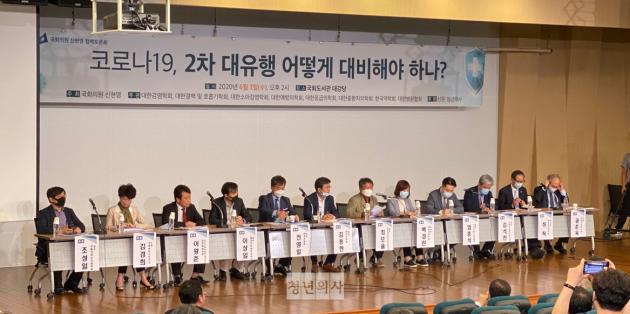
The Covid-19 crisis negatively affected healthcare for patients with other diseases, pushing up the number of deaths.
Korean Society of Epidemiology President Kim Dong-hyun (Hallym University College of Medicine’s Medical Education Department) said Korea was reporting an increase in “excess mortality” as well as Covid-19 deaths. Excess mortality refers to deaths in a crisis beyond the expected number under normal conditions.
According to Kim, the nation’s excess deaths in the first quarter went up 6 percent from a year earlier. The increase was much steeper at 10.6 percent in Daegu and 9.5 percent in North Gyeongsang Province, once the epicenters of the Covid-19 outbreak in Korea. The excess mortality in Seoul was up 6.5 percent on-year in the first quarter.
“In the U.S., we can see excess mortality caused by cancer or cardiovascular disease. As medical institutions had to concentrate on Covid-19, deaths caused by other diseases seemed to have risen,” Kim said.
Kim said hospitals should be able to maintain the emergency room and the intensive care unit functions so that they can identify the situation and respond to it in real-time. To prevent Covid-19 patients from entering general hospitals, the nation needs to operate clinics that exclusively deal with respiratory symptoms.
“Even if we start the preparation now, it will not be easy to complete a properly operating system by September or October,” he warned.
For the healthcare industry to deal with the rising demand in a post-Corona-19 era, it needs massive policy support from the government, Kim went on to say.
“I don’t mean the government should simply give healthcare professionals more money. The government should come up with a New Deal through social consensus so that the medical community could be equipped with disease prevention infrastructure,” he said.
Korean Society of Infectious Diseases President Peck Kyong-ran (Samsung Medical Center) said the nation needs a system that supports both Covid-19 care and general care.
“We should brace for a long-term Covid-19 war. The outbreak will continue until next year. We have to withstand the impact until we develop a vaccine,” Peck said. “Whether a stronger Covid-19 outbreak will occur in the coming fall, just like the Spanish flu, or whether the impact will be manageable with our medical ability hinge on how we prepare for it during the golden time.”
She pointed out that medical institutions should care both for Covid-19 patients and non-Covid-19 patients. The nation needs a system where Covid-19 patients get treatment according to the severity of the symptoms, and non-Covid-19 patients receive urgent care, surgery, and baby delivery care smoothly, Peck added. “It depends on how we utilize resources efficiently,” she said.
Peck suggested allowing only public health centers to test Covid-19 and increasing the number of beds for ICUs, operation rooms, delivery rooms, and pediatrics-only care. Also, hospitals need more human resources for critically ill patients and medical supplies, such as protective gear.
Peck also said even though the government’s sharing of information with the public has been transparent, there was a lack of communication between physicians and the government. She proposed making a national crisis response medical information network to address this issue.
Healthcare experts noted that the current medical system would find it challenging to handle the overwhelming medical needs. Hospitals were too short-staffed and making excessive losses, they said.
It would be impossible to fight Covid-19 in the long-term if doctors and nurses were continuously forced to sacrifice for public health, they added.
The following are excerpts from the debate among panelists.
Professor Lee Sang-il at the Preventive Medicine Department of Ulsan University College of Medicine
‘Korea’s success in Covid-19 control? Popped champagne cork too early’
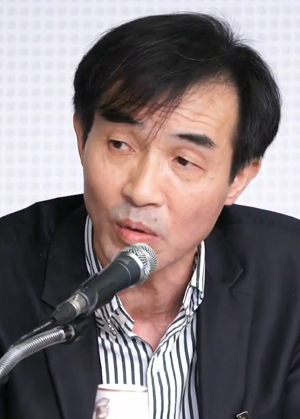
The government said Korea’s Covid-19 prevention and control was a success that should be “exported.” Still, it is too early to call it a success. We popped the champagne cork too early. Even under an optimistic scenario, the outbreak is likely to continue until late next year. If we look at it for 24 months, it has been only five months so far.
What’s critically important is how we are capable of treating severe patients. Still, there are too many unnecessary patients occupying beds that should have gone to seriously ill patients. Even without Covid-19, we are short of beds for critically ill patients. We should do antibody testing as soon as possible. The policy direction could be different, depending on how much community infections were prevalent.
Professor Eom Joong-sik at the Internal Medicine Department at Gachon University Gil Medical Center
‘What if a second wave hits after hospitals get too exhausted to care’
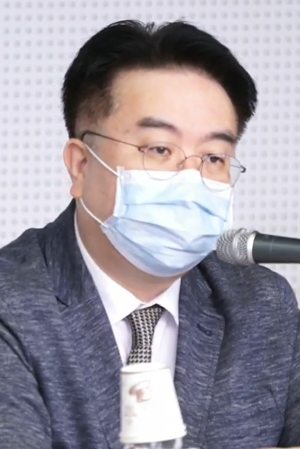
For hospitals to respond to Covid-19, they need not only doctors and nurses but other workforce for waste management and cleaning, medical assistance, security, and administration. But they are not hiring enough. A shortage of workforce increases the risk of the existing workforce. Buying equipment and creating facilities are reimbursed, but not recruiting additional personnel. Security people are doing part-time work, but hospitals can't get them even if they pay them 300,000 won ($246.5) per day. Unless these compensations are guaranteed, hospitals can’t fight a long-term battle. If the pandemic comes with stronger power, the nation under the current healthcare system will fail to handle it.
I agree with the opinion that we need a New Deal in healthcare. What will happen if a second pandemic comes after everyone gets too exhausted to care for patients? The government should give sufficient support in advance.
Professor Kim Seok-chan at the Pulmonary and Allergy Department of Seoul St. Mary’s Hospital
‘I don’t know how long we could keep up’
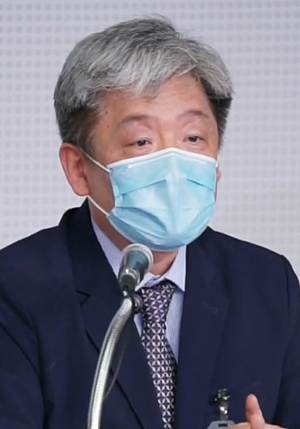
Physicians in infectious disease and respiratory departments are still on high alert. They have been holding on well so far, but they are exhausted. I don’t know how long they can endure this.
When the cluster infections became serious in Daegu and North Gyeongsang Province, pulmonary specialists or doctors tending to critically ill patients did not know the exact Covid-19 situation. There was no data on how many patients were severely sick or with ventilators and how worse Covid-19 patients were getting. So, physicians collected the information on their own. There was no control tower to decide the transfer of a patient. Doctors taking care of the patient had to discuss the issue themselves.
I realized that we were short of nurses in intensive care. I heard that nurses work three or four times more than doctors. We need a system to help not only doctors but nurses withstand the crisis together. Without such a system, it will be difficult to endure the second wave of the outbreak.
Heo Tag, chairman of the Korean Society of Emergency Medicine
‘ER needs spacious isolated area’
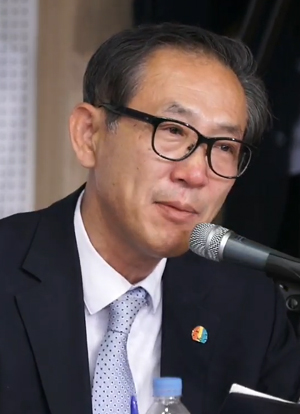
Doctors have no other option but to be careful about treating urgent and seriously ill patients whose Covid-19 infection is not confirmed. Many patients had to look for a hospital for admission at the early outbreak in Daegu and North Gyeongsang Province due to Covid-19 uncertainty. Even now, we see these cases. To treat a patient whose Covid-19 is not confirmed, the ER needs a spacious isolated room. Otherwise, the ER has to close, and the medical system could collapse.
Emergency medicine and critical care should be centered on local communities. To do so, the local governments should take the lead. Seoul and Gyeonggi Province seem to be moving in this direction. Still, other regions are failing to be a control tower to push this.
Lee Wang-jun, the leader of the Working Group of the Korean Hospital Association’s New Coronavirus Emergency Response Headquarters, and chairman of Myongji Hospital
‘Appendectomy on Covid-19 patient needs 23 staff but reimbursement is the same’
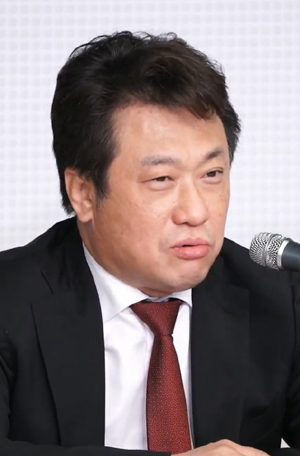
Korea’s healthcare policies do not have any concept of a long-term fight against infectious disease. Doctors have already entered the long-term battle, but the medical system remains the same. Healthcare workers are getting tired. The nightmare of the Middle East Respiratory Syndrome (MERS) outbreak stayed for only two months. But Covid-19 is ongoing for the fifth month. If nurses working at an isolated ward get knocked down, we can’t say other nurses to go in. Who would go in? We have to give them vacations, bonuses, and risk allowances, but we can’t, in reality.
We need at least 21 nurses to take care of seven patients in an isolated ward exclusively. The hospital has to spend four times as much as spending on nurses at Grade 2.
We had to put 23 medical staff to perform surgery on a patient who had appendix and peritonitis. The operation, including disinfection, took 10 hours. But we received the same reimbursement given to general appendix surgery. If the authorities do not shift emergency disaster reimbursement to infectious disease reimbursement, no hospital will try to see Covid-19 patients.
The government has to make decisions swiftly, on how to keep the dual system to care for both general patients and Covid-19 patients, how to establish the medical delivery system and infrastructure, and how to develop a sustainable reimbursement system.
In Japan, the health authorities doubled the reimbursement for Covid-19 care. If the government does not prepare measures quickly and change, it is difficult to overcome this crisis.
Kwon Jun-wook, deputy general of KCDC
‘We’re on thin ice every day, need to change strategy for disease control’
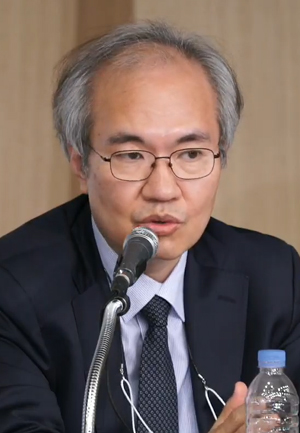
We’re in a risky and serious situation. We are seeing an increasing number of Covid-19 patients without clear transmission routes in the Seoul metropolitan area. Because of that, we have to change the direction of the disease prevention and control strategy. We may need stronger social distancing, but some suggest other approaches.
Compared to other countries, Korea’s confirmed cases surged during the cluster infections in Daegu and came down. But recently, the numbers are going up again. If we see the numbers in the U.S., Singapore, Russia, and Europe simultaneously, we’re clearly in a moment of crisis. We need an extraordinary measure and direction. Experts say we need to prepare for a second wave of the pandemic, but government officials are very concerned as if they are walking on the thin ice.

